#Prevention and Treatment of Uterine Cancer
Explore tagged Tumblr posts
Text
My campaign is verified and added to the Gaza Donations page with number 192.
Thank you for documenting my campaign from the following accounts:
@sar-soor @heba-20 @el-shab-hussein @90-ghost @soon-palestine@ibtisams @marnota @riding-with-the-wild-hunt @i-am-aprl @northgazaupdates @fallahifag @fairuzfan
I love you all 🙏🙏♥️🌹
I am Mohammed Almanasra, 32 years old, married, and a father of three children: Abdulrahman, 6 years old, Sarah, 4 years old, and Lina, 3 years old.

My story began with the loss of my parents and four of my sisters, who were bombed and lost their lives along with their children after the events of October 7 and the severe war on Gaza. Now, I am facing a severe injury to my leg, which is at risk of amputation if I do not receive the necessary treatment. My wife, children, and I are displaced, without parents or siblings, and my wife is also suffering from uterine cancer.
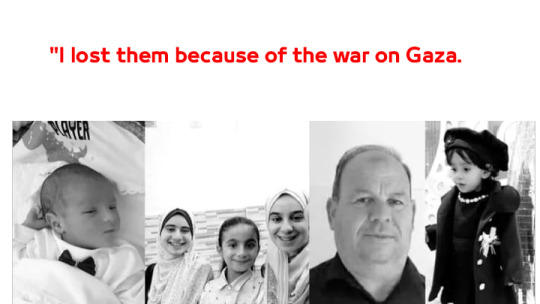
Recently, I moved to the south of the Gaza Strip, fearing for the lives of my children. We left behind our memories and our new home, for which we had not finished paying the installments, in addition to losing my job. Currently, I live in a tent that does not protect me from the heat of summer or the cold of winter, and without the minimum necessary livinng basics including water, food medical care, clothe and even bedding .
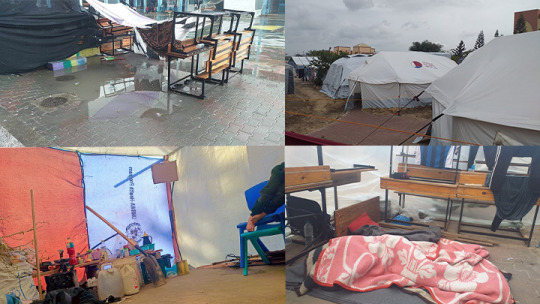
I suffer from a chronic asthma and severe attacks from tightness and an extreme allergy in the ear and I need medicine that are not available, or very expensive .
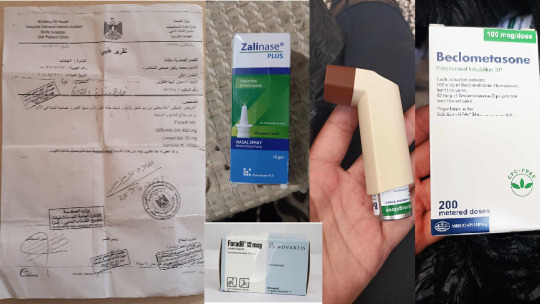

Under these difficult circumstances, after five attempts at displacement and narrowly escaping death from the bombing, I am trying with all my might to protect my family, the most precious thing I have.
My dreams were shattered, and my house was destroyed, and I found myself living in a tent no larger than 4 square metres. My work turned from a tailor to a street vendor in order to barely buy a few crumbs of bread to feed my children.
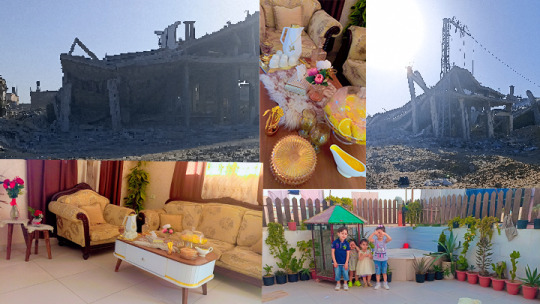
Look at what happened to my children because of the intense heat and the insects that thrive in the summer season. Every day, I take them to the hospital to treat them due to poisonous insect bites. I implore every kind-hearted soul to help me protect my children.
My son, Abdul Rahman, has a deep passion for playing football and is a devoted fan of Real Madrid. He always dreamed of playing football at his school, but the war prevented this dream from coming true.
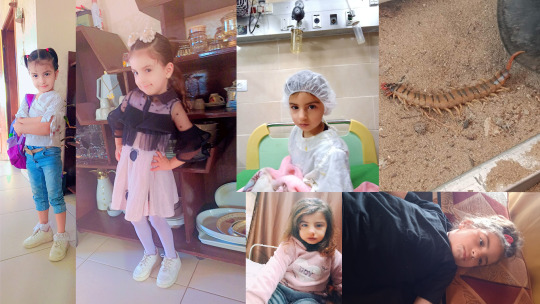
Where are you, Real Madrid fans ?
Help Abdul Rahman achieve his dream.

Every donation will make an enormous difference in helping me save my family.
I feel very sad and embarrassed to ask for help, but I have no other options left. I know that this request is difficult, but I also know that there is still humanity and living consciences and I believe in miracles.
Your support during this extremely difficult time will give us hope in the midst of devastation and despair.
If you have any inquiries or questions, feel free to ask me, please!
To everyone with a compassionate heart,
To all who understand the essence of humanity,
This is a message from my innocent children, who trust that their words will reach everyone who truly understands the meaning of childhood.
We cry out to you, asking you to feel our sorrow and pain, and to extend a helping hand to us in this time when we are in desperate need of your mercy and compassion.
My name is being repeatedly added to many public and private donation campaigns. Please, be a support for me in this difficult situation.
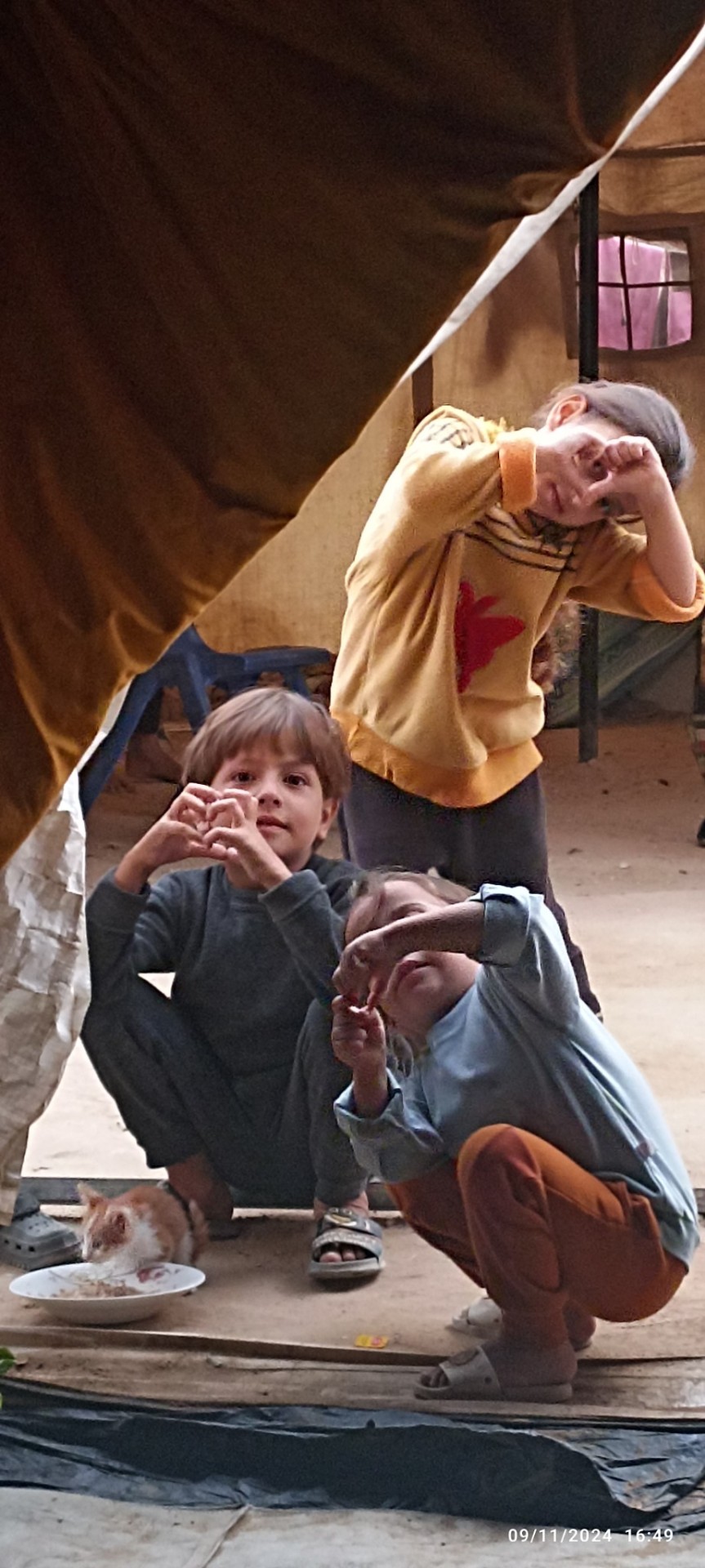

Sincere greetings & thanks
Mohammed & the family
#gofundme#palestinian genocide#free gaza#gaza strip#gaza#i stand with palestine 🇵🇸#free palestine 🇵🇸#from the river to the sea palestine will be free#palestine#gaza under attack#aid for gaza#palestine aid#support palestine#my posts#paypal#palestine news#please#war on gaza#🥭#follow 👑 share ❤️ enjoy 🍑#🇵🇸#save 🍉#palestine 🍉#much love 🫶#📍 pinned post.#sorry 😔#gaza solidarity encampment#gaza gofundme#palestine gfm#free palestine
28K notes
·
View notes
Text
my friend mohamed’s cat, amy, is older than all three of his children! he carried her with him when he and his family were forced to evacuate their home in north gaza due to the brutal colonizing forces and their us-funded death squads ravaging palestine for its land.
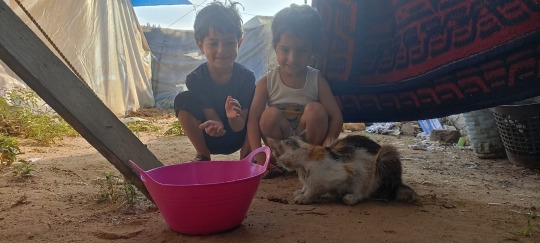
here is amy now - she’s been skin and bones since the genocide has prevented mohamed from accessing adequate care for her illness. still, she makes his children smile and he hopes to get treatment for her when they are able to evacuate into egypt. just the same as mohamed plans on finding care for his wife, who is suffering from advanced uterine cancer, mohamed cares a great deal about this little cat.


here’s another picture of amy and of the two birds that mohamed’s family escaped north gaza with. how incredible is it that so many palestinians refuse to abandon their beloved animals, even as the occupation indiscriminately brutalizes and destroys all life?



something beautiful happened! this tiny kitten has joined mohamed’s family in the tent! abdul rahman, sarah, and lynn all love this kitten and hope that they are able to bring it across the border when the rafah crossing opens back up.
despite serious illness, mohamed’s daughter sarah talks constantly about how much she loves these cats and wants to play with them again. mohamed tells me that she loves cats more than she loves her own parents sometimes. i understand her. can you help keep her safe and ensure that she can bring these animals with her to egypt?
donations increased temporarily after the election results were called, then slowed down again as americans seem to retreat back into themselves. please let these people hold your attention this time.
mohamed is #192 on this verification sheet.
if you would like an alternative method for donating, please use this cashapp QR code to send money to mohamed’s fundraising coordinator. we are in constant contact and mohamed confirms to me that 100% of these funds are sent directly to him without delay.

please help me protect this family and their pets.
1K notes
·
View notes
Note
Hello, My name is Mohammed, and I'm from Gaza. I am not a robot or a scammer. The war in Gaza has left me with devastating memories and unbearable pain. I lost my parents and siblings in horrifying moments, and my life is now filled with tears and agony. I sustained severe injuries to my leg, and every passing day I feel the threat of losing it due to the lack of necessary treatment. 😭 My beloved wife is suffering from uterine cancer and has not been able to receive chemotherapy sessions since the beginning of the events in Gaza. My innocent children live in constant fear and anxiety, and I cannot bear to see their tear-filled eyes. I humbly and hopefully request your donation of $5 or more to treat my leg, save my wife's life, and secure the future of my children. Every passing minute increases our suffering and pushes us closer to the edge. My story is documented under the number 192, and my information is verified. You can verify this by requesting any information you need. Please donate and share my story with others. My wife, children, and I are waiting for your prayers and support with broken hearts and hanging hopes. Thank you very much.
Hi Mohammed! Of course I'll share
Mohammed is from Gaza, he's 32YO, he's married and he's the father of three children: Abdulrahman, 6 years old, Sarah, 4 years old, and Lina, 3 years old.
Mohammed lost his mother, father, and four sisters who were killed in a bombing, and is now living in tents with his remaining family members, his wife and three young children. he was seriously injured in his foot and it may need to be amputated, but he doesn't care if he loses his foot he just doesn't want to lose his family.
His wife has uterine cancer but hasn't been able to get treatment recently because the genocidal israeli army has destroyed health centers. His children are suffering from infectious diseases spreading throughout gaza, and the little medical treatment available is very expensive.
Mohammed suffers from chronic asthma and severe attacks from tightness and an extreme allergy, and needs meds that are not available, or very expensive. His family lost their home, but they're still there and he's trying to protect them with all he has.
"My main goal with this donation is to protect my children, my wife, and our scaredy cat and evacuate them to a safe place away from the ongoing wars. The funds will be used to cross the Egyptian border and bring basic needs and treatments to create a more stable conditions for my family. Approximately $18,000 will be allocated for travel expenses, and around $6,000 for securing suitable housing for a couple of months. As for the medical treatment costs, the exact figure will be determined after undergoing examinations in hospitals in the Arab Republic of Egypt & it's gonna be in average $8,000. The remaining amount will be used to establish a small project to sustain our daily living, enabling me to provide for my children and wife.
My son, Abdul Rahman, has a deep passion for playing football and is a devoted fan of Real Madrid. He always dreamed of playing football at his school, but the war prevented this dream from coming true.
Where are you, Real Madrid fans?
Help Abdul Rahman achieve his dream."
THIS CAMPAIGN IS VETTED
#fundraiser#palestine fundraiser#free palestine#i stand with palestine#palestine#palestine genocide#all eyes on palestine#free gaza#gaza genocide#gaza strip#gaza#real madrid
16 notes
·
View notes
Text
youtube
The Easy Way to Shrink Fibroids Naturally With No Risk of Complications
Shrink fibroids in a natural way: an overview of the hottest natural cures for fibroids. Uterine fibroids are the most common non-cancerous kind of growths found in women. Usually they occur during the middle and late reproductive years (30-50) and don't present with symptoms. Although fibroids are non-cancerous, they would visit site here cause assorted health issues or complications when pregnant if left untreated. Due to the fact that traditional medical treatments for fibroids are painful and intrusive, many females research natural paths to shrink fibroids.
Uterine fibroids develop from the muscle layers of the uterus and are comprised of muscle and fibrous tissue. They alter in size and could develop with no symptoms.
Uterine fibroids affect one fifth of all ladies at some specific point during their life. Often ladies between thirty and 50 years of age, as well as chubby females are at greater risk of fibroids.
The primary problem linked with fibroids treatment, including natural methods to shrink fibroids, is shortage of information about the specific reasons for their formation. Doctors believe that genetic predispositions, prenatal hormone exposure, the effect of hormones, growth factors including certain medical problems can make a contribution to fibroids development.
Though most fibroids don't need management unless they're causing symptoms, finding out how to shrink fibroids in a natural way is something every female diagnosed as having uterine fibroids should think about.
There are several holistic approaches to uterine fibroids treatment. Commonly, these techniques target reducing the levels of estrogen hormones because these hormones helps the development of fibroids. Certain natural cures for fibroids consist of special nutrition diets and routines built to detox the body and so speed up natural healing processes, and assorted herbs.
A popular natural fibroid therapy is keeping a good diet. A diverse and well-balanced eating plan might help to shrink fibroids and prevent them from forming again. Such nutrition plan ought to comprise of organic fruit and veg, and particularly foods that are known to dam estrogen production. Commercially made food products have to be absolutely eliminated from the menu as they may contain hormones and chemicals that push fibroids formation.
2 notes
·
View notes
Text
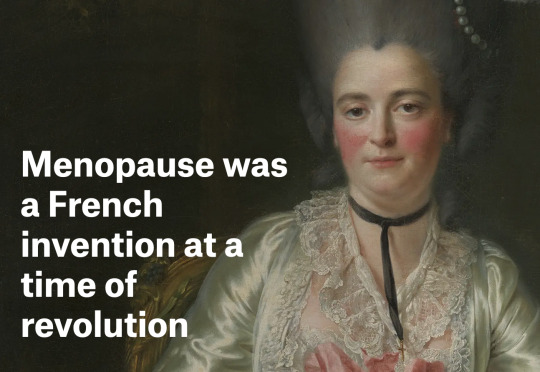
Menopause was a French invention at a time of revolution (Alison M Downham Moore, Psyche, July 30 2024)
"Have women in all historical and present cultures suffered the ailments of menopause we know about today?
Studies in medical history and anthropology, and cross-cultural medical surveys, indicate wide variability in how women have experienced it globally.
Japanese women interviewed in the 1990s described their primary complaint of midlife as shoulder stiffness – not hot flushes.
And a 2015 study of British Pakistani women found that those raised in Pakistan were more likely to believe the menopause caused a cough and sore throat, while those raised in the UK were more likely to see it in a range of emotional symptoms.
No concept like ‘menopause’ is found in any world health or medical tradition, except in Western biomedicine.
And, even in the West, neither physicians nor midwives had much to say about the final cessation of menses before about 1780.
So how did the concept originate?
Menopause was first defined by young male university students and their medical professors at the universities of Montpellier and Paris from the end of the 1700s.
It was a major topic in France throughout the 19th century, with several hundred books written about it in the emerging new specialisms of hygiene (preventive health), psychiatry, gynaecology, sexology and endocrinology.
No other culture was anywhere near as interested in this topic as the French, and even those very few works on menopause appearing in Germany, England and the US during the 19th century borrowed heavily from them.
Why were the French in particular so fascinated by menopause?
Menopause was likely invented by the French because of its association with three categories of nervous pathologies that had flourished in medical writing there from the end of the 1600s into the 1800s: the vapours, hysteria, and hypochondria.
Nervous diseases, it was thought, were a product of luxury and civilisation: urban life, stale air, sedentary lifeways, overeating, exotic foods and beverages, licentiousness, and corporeal laziness were all to blame.
A medical view emerged of urban elite women in modern France as generally more prone to nervous diseases during times of uterine change, including around the final cessation of menses, via ‘sympathies’ of the uterus with the nervous system and the brain. (…)
When French physicians queried older peasant women about their cessation of menses, they were met with blank looks or laughter, since the very idea that simply being old enough to gain relief from menstruation and childbirth made one sick was completely alien and nonsensical to them.
Medical theses produced between 1799 and 1840 developed a rich ‘hygienic’ discourse, advising urban women to mimic peasant diets and lifeways to avoid the ravages of menopause and enjoy a healthy ageing. (…)
In the early 20th century, women conducted research studies on the diseases of women’s ageing, after they were permitted to enter the medical profession.
There was a distinctly less catastrophising and generalising tone.
They addressed serious diseases such as uterine cancer, or worrying symptoms such as haemorrhagic bleeding, but did not see these as problems for all women whose menses was ceasing.
Sage voices had long criticised the practice of lumping all women’s experiences of midlife and old age into the container of menopause.
Some women doctors argued that the concept of menopause was itself a risk to women’s health, producing an ‘auto-suggestion’, or nocebo effect that they would be better to avoid and simply take good care of their minds and bodies, or even embark on a quest for spiritual insight instead. (…)
The concept of menopause did not come from women themselves but rather from medical men for whom it served as a useful and generative case-example.
It was a tool for biomedical reformulations of treatment practices and for the conceptual separation of morbidity from mortality; it was a teaching device for male medical students learning the new mechanistic approach to women’s health; it was a weapon with which to fight other doctors, medical faculties and rival health traditions, as well as a pathway for new medical disciplines such as hygiene, psychiatry, gynaecological surgery and emergent endocrinology – to expand patient markets, develop theoretical precepts and refine clinical skills. (…)
The French pathologisation of menopause informed the 20th-century view of women as too different to include in clinical trials on account of their uterine exceptionalism, which continues to hamper current scientific knowledge of gendered diseases and drug responses.
More women than ever now live to an age when they will see their menses cease, so there is increased interest in menopause and new forms of representation about it.
But there is also a massive growth in the marketing of products and services designed to extract profits from women in midlife by promoting worry about their ageing and promising false remedies for all their life challenges.
Just like French doctors in the 19th century, commercial entities today hold a vested interest in the idea that menopause is a time of crisis and revolution – something we necessarily need to treat through specific interventions that target it."
8 notes
·
View notes
Text
*Dr. Smita Goel Homeopathy Clinic*
www.thehomeopathyclinic.co.in
Infertility case is increasing in all over world. The main causes of this is change our life style, foods, hight stress level etc. Around 10% - 15% is facing to infertility problems.
Causes in Men:
• Low sperm count: The man ejaculates a low number of sperm. A sperm count of under 15 million is considered low. Around one third of couples have difficulty conceiving due to a low sperm count.
• Low sperm mobility (motility): The sperm cannot “swim” as well as they should to reach the egg.
• Abnormal sperm: The sperm may have an unusual shape, making it harder to move and fertilize an egg.
• Genetic factors: A man should have an X and Y chromosome. If he has two X chromosomes and one Y chromosome, as in Klinefelter’s syndrome, the testicles will develop abnormally and there will be low testosterone and a low sperm count or no sperm.
• Mumps: If this occurs after puberty, inflammation of the testicles may affect sperm production.
• Hypospadias: The urethral opening is under the penis, instead of its tip. This abnormality is usually surgically corrected in infancy. If the correction is not done, it may be harder for the sperm to get to the female’s cervix. Hypospadias affects about 1 in every 500 newborn boys.
• Cystic fibrosis: This is a chronic disease that results in the creation of a sticky mucus. This mucus mainly affects the lungs, but males may also have a missing or obstructed vas deferens. The vas deferens carries sperm from the epididymis to the ejaculatory duct and the urethra.
• Radiation therapy: This can impair sperm production. The severity usually depends on how near to the testicles the radiation was aimed.
• Some diseases: Conditions that are sometimes linked to lower fertility in males are anemia, Cushing’s syndrome, diabetes, and thyroid disease.
Causes in Women:
• Age: The ability to conceive starts to fall around the age of 32 years.
• Smoking: Smoking significantly increases the risk of infertility in both men and women, and it may undermine the effects of fertility treatment. Smoking during pregnancy increases the chance of pregnancy loss. Passive smoking has also been linked to lower fertility.
• Alcohol: Any amount of alcohol consumption can affect the chances of conceiving.
• Being obese or overweight: This can increase the risk of infertility in women as well as men.
• Eating disorders: If an eating disorder leads to serious weight loss, fertility problems may arise.
• Diet: A lack of folic acid, iron, zinc, and vitamin B-12 can affect fertility. Women who are at risk, including those on a vegan diet, should ask the doctor about supplements.
• Exercise: Both too much and too little exercise can lead to fertility problems.
• Sexually transmitted infections (STIs): Chlamydia can damage the fallopian tubes in a woman and cause inflammation in a man’s scrotum. Some other STIs may also cause infertility.
• Exposure to some chemicals: Some pesticides, herbicides, metals, such as lead, and solvents have been linked to fertility problems in both men and women. A mouse study has suggested that ingredients in some household detergents may reduce fertility.
• Mental stress: This may affect female ovulation and male sperm production and can lead to reduced sexual activity.
• Surgery: Pelvic surgery can sometimes cause scarring or damage to the fallopian tubes. Cervical surgery can sometimes cause scarring or shortening of the cervix. The cervix is the neck of the uterus.
• Submucosal fibroids: Benign or non-cancerous tumors occur in the muscular wall of the uterus. They can interfere with implantation or block the fallopian tube, preventing sperm from fertilizing the egg. Large submucosal uterine fibroids may make the uterus’ cavity bigger, increasing the distance the sperm has to travel.
• Endometriosis: Cells that normally occur within the lining of the uterus start growing elsewhere in the body.
• Previous sterilization treatment: In women who have chosen to have their fallopian tubes blocked, the process can be reversed, but the chances of becoming fertile again are not high.
Homeopathy has very effective medicines for these problems. And they give good results.
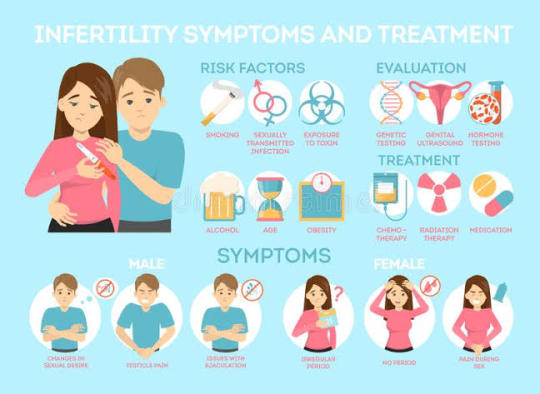
#health & fitness#health and wellness#chronic illness#homeopath#homeopathy#mental illness#ghaziabad#greater noida#indirapuram#new york#doctor odyssey#doctor strange#doctor who#twelfth doctor#tenth doctor#hazaribagh#hazaribag#kanpur#lucknow#fatehpur#jharkhand#jharkhandnews#uttarakhand news#uttar pradesh#uttarakhand#health products#good health#health insurance#health#health tips
3 notes
·
View notes
Text
My favorite part of having a uterus and periods is the way my meds just. Don’t work as well when I start menstruating. My sleep meds, my ADHD meds, my anxiety meds, everything gets noticeably less effective for like 2-3 weeks and I just have to suffer through it!
And gods forbid there be studies of the efficacy of daily medication during menstruation, a biological process that occurs frequently for a large chunk of the entire human population, because that would be stupid! Unlike how they used to study treatments/preventions for uterine and ovarian cancer in people without a uterus or ovaries.
Anyways. I’m grumpy and tired and anxious, my chronic fatigue and chronic pain are acting up, and I just want to feel more like ‘normal’ me again.
#shout out that episode of Last Week Tonight for teaching me that women/afabs were intentionally excluded from medical studies and research#because their ‘pesky hormones’ messed with the results and were a hassle#like apparently there was a general attitude/beleif that studying men and only men made sense because they were the ‘default’
2 notes
·
View notes
Text
Outdated grooming policies banning natural Black hairstyles have fueled racial inequities in schools and workplaces for too long. However, a new wave of legislative reforms and public advocacy aims to finally dismantle this form of discrimination. The CROWN Act (Creating a Respectful and Open World for Natural Hair) has emerged as a legislative solution, prohibiting race-based hair discrimination. To date, the CROWN Act has been enacted in 24 states and numerous municipalities but has stalled in the U.S. Senate after passing through the House. Additionally, some state-level versions of the CROWN Act still enable discriminatory targeting of Black hairstyles.
In Texas, the CROWN Act left loopholes allowing bans on hair longer than two inches, which explicitly singles out and prohibits natural Black hairstyles like afros and dreadlocks on male students. By failing to bar restrictive policies on length and color, Texas’ version of the CROWN Act falls short of fully preventing race-based hair discrimination. Such gaps at the state level undermine the spirit of the CROWN Act and must be addressed through truly comprehensive reforms that protect all facets of Black hair. This gap between legislative success and real-world implementation, as evidenced by the suspension of a Texas student months after the Act’s passage, highlights the need for comprehensive legislation to fully address hair discrimination. Moving forward, legislation must address hair length, color, texture, and style to create truly inclusive policies without loopholes that permit discrimination.
Hair policies that regulate length and color have specifically targeted Black students, leading to disproportionate discipline and loss of educational opportunities. National data reveal that while Black students represent 15% of the K–12 population, they account for 31% of all school suspensions. Black students nationwide are missing nearly three times as many school days due to suspension as white students, accounting for a disproportionate number of the total 11 million days of lost instruction. In one school district in Texas, research from the Center for Justice Research at Texas Southern University found that Black students are seven times more likely to be suspended compared to white students, often for discretionary, minor behavioral infractions. Repeated suspensions increase the risk of falling behind, dropping out, and having contact with the juvenile justice system. In fact, one study revealed a concerning cycle—students who were suspended from school were seven percent more likely to later have contact with the juvenile justice system. Moreover, once these students returned to their schools after suspension, they were 20% more likely than their peers to face another suspension.
The consequences of hair discrimination extend beyond the classroom. A 2021 study found that Black women with natural hairstyles are less likely to be recommended for a job interview compared to white women with curly or straightened hair. Natural hairstyles like dreadlocks were deemed less professional. This employment discrimination limits economic mobility and forces Black women to incur the financial and health burdens of damaging chemical treatments, including increased uterine cancer risk from chemical straighteners.
To achieve the goal of ending hair discrimination, the CROWN Act must expand to cover all facets of hair style and presentation without exceptions, such as those found in the Texas version. Congress should pass the federal CROWN Act, joining states like Colorado and New Jersey in enacting more comprehensive bills that close loopholes. Enforcement will also require dedicated resources and training. School administrators must learn how to shift away from punitive dress codes toward supportive, culturally-informed policies. Human resource professionals need guidance on removing Eurocentric appearance standards from hiring and grooming practices.
The CROWN Act reflects an important step towards ending race-based hair discrimination. However, true progress requires closing loopholes that allow for continued disproportionate enforcement against Black students and workers. Comprehensive legislation coupled with proper training and enforcement provides a path forward to ending harmful policies rooted in white supremacist standards. Schools and workplaces must move beyond narrow beauty norms towards valuing diversity in how individuals present themselves. This includes embracing and protecting all hair lengths, textures, and colors.
Why it matters
Hair discrimination limits educational attainment, career opportunities, and economic mobility for Black Americans. It also exacts a psychological and physical health toll by forcing assimilation to white beauty standards. The CROWN Act has the potential to eliminate centuries-old institutional policies and stereotypes that perpetuate racial inequities and trauma.
However, achieving this goal depends on enacting legislation that fully encompasses all facets of hair, including length, texture, color, and style. Comprehensive legal protections coupled with training and enforcement can help create more inclusive environments, where individuals are empowered to show up authentically. Getting the CROWN Act right matters for racial justice and equality of opportunity.
2 notes
·
View notes
Text
X-Plain New and Updated Topics
The Patient Education Institute has published, reviewed or updated 91 titles in Q1 and Q2 2023. We provide each topic in 5 instructional formats (tutorial, video, illustrated handout, XML, and overview).
Alcohol Use Disorder Amyotrophic Lateral Sclerosis (Arabic) Angina Arixtra Arrhythmias Asperger's Syndrome (Arabic) Asthma - Pediatric (Arabic) Atherosclerosis Atrial Flutter (Spanish) Attention Deficit Hyperactivity Disorder - ADHD (Arabic) Back Pain - Introduction to Pain Management Blepharoplasty - Eyelid Surgery Blood Pressure Medicines (Arabic) Bone Densitometry Breast Cancer - Hormonal and Targeted Therapies Breast Cancer - Hormonal and Targeted Therapies (Arabic) Bunionectomy Bursitis (Arabic) C. difficile Infections Cardiac Ablation for Atrial Fibrillation Cardiac Rehabilitation (Arabic) Cataract Surgery Cerebral Angiogram Chagas Disease (Arabic) Chemotherapy for Breast Cancer - General (Arabic) Chickenpox Cholera (Arabic) Colon Cancer (Spanish) Colon Cancer Surgery (Arabic) Colorectal Cancer (Arabic) Cystocele Dilation and Curettage (Spanish) Dust Mite Allergy Dystonia Erectile Dysfunction - Penile Implants Fetal Alcohol Syndrome Fibromyalgia Forehead Lift Galactosemia Gout (Spanish) Healthy Sleeping Hearing Problems in Children (Arabic) HIDA Scan HPV - Warts Hydrothermal Endometrial Ablation Incentive Spirometer Incentive Spirometer - Pediatrics Intrathecal Morphine Pump Placement Juvenile Idiopathic Arthritis (Arabic) Knee Replacement - Preventing Post Op Complications (Arabic) Living Healthy (Spanish) Living with Congestive Heart Failure Lung Cancer (Spanish) Lupus Lyme Disease (Arabic) Massage Therapy Meditation Melanoma Menstruation (Arabic) Miscarriage (Arabic) Monkeypox Multiple Sclerosis (Spanish) Nail Diseases and Problems (Arabic) Neuroblastoma (Arabic) Neurofibromatosis Non-Hodgkin's Lymphoma Nutrition During Cancer Treatment Pancreas Transplantation (Arabic) Personality Disorders (Arabic) Pregnancy - First Trimester - What to Expect Pregnancy - Second Trimester - What to Expect Pregnancy - Third Trimester - What to Expect Prenatal Testing (Spanish) Preventing Catheter Associated Bloodstream Infections (Arabic) PSA - Screening for Prostate Cancer Rhinoplasty Rubella Schizophrenia Severe Acute Respiratory Syndrome - SARS Sickle Cell Anemia (Arabic) Sigmoidoscopy Simpson-Golabi-Behmel Syndrome - SGBS Skin Cancer - Non-Melanoma (Spanish) Smoking Cessation Tendinitis (Arabic) Treatment of Myelodysplastic Syndromes - MDS Understanding the Different Types of Myelodysplastic Syndromes - MDS (Spanish) Urinary Tract Infections in Elderly Adults Uterine Diseases (Arabic) VP Shunts Warfarin - Review for Current Users - Pediatrics
2 notes
·
View notes
Text
please help try to prevent this family from being separated despite all odds


@save-mohamed-family ‘s wife, manal, is in critical condition. she has developed late-stage uterine cancer during this endless extermination campaign against life in palestine, surviving now over a year without access to proper treatment or a night’s rest without threat of death via bombing or starvation.
the director of the hospital is arranging for her to be evacuated soon. the trouble is that manal cannot leave without her husband, my dear friend mohamed, and they cannot leave any of their three young children behind in an active war-zone.
please try to help. please do anything you can. it doesn’t have to be perfect, but it needs to happen quickly and this family needs a lot of you.
please share this campaign, this story. these are human beings enduring unimaginable things. the hateful comments being left on this campaign have never looked more like buzzing flies tantruming they cannot feast on more death. this campaign’s circulation is proof of life.
these babies are alive. do you see them? can you help them go with their mother and father?

vetted #192 here @save-mohamed-family
1K notes
·
View notes
Text
Machine learning already save lives. A specific model can detect breast cancer signs on mammograms up to 5 years before it starts to develop. The amount of doctors that can do that is incredibly small and even then they make more mistakes than the software.
Machine learning could be as significant as the development of radiation therapy for cancer treatment, but at the preventive stage. For breast cancer there are already very regular checkups (but it still could mean getting years of head start on it, thus saving a lot of work, pain and side effects), but if the tech trains well on other types of frequent cancer you could have a yearly check just by doing the irm and look for colon, prostate, throat, lung and uterine cancer in one go.
Please, when you mean generative visual or text Gans, LLMs, or chat bots, just say it. Don't let companies use AI to mean everything with a machine that is not purely an algorithm. Just because something is doing linear regression doesn't mean it's GenAI.

(Source)
73K notes
·
View notes
Text
Who Needs an MRI Scan? Understanding the Types of Patients Who Should Get One

MRI scans are one of the most advanced diagnostic tools available in modern medicine. They provide detailed images of the body’s internal structures without using harmful radiation, making them a preferred choice for many conditions. But not everyone needs one. So, who exactly should get an MRI scan?
In this guide, we’ll explore the types of patients who commonly require an MRI scan, the medical reasons behind it, and how to book your scan easily with CareBox.
🧠 1. Patients with Neurological Symptoms
An MRI scan is a must-have tool for patients showing signs of neurological problems. This includes:
Frequent or sudden headaches or migraines
Seizures or epilepsy
Memory loss or confusion
Suspected stroke or mini-stroke (TIA)
Vision problems without a clear cause
MRI Brain scans can detect abnormalities like brain tumors, aneurysms, multiple sclerosis, or internal bleeding. If you're facing persistent neurological symptoms, an MRI is often the first step in diagnosis.
🦴 2. Patients with Chronic Back or Neck Pain
People with ongoing back or neck pain, especially when it radiates to arms or legs, may have spinal disc issues or nerve compression. MRI scans help evaluate:
Slipped/herniated discs
Spinal cord injuries
Nerve root compression (sciatica)
Degenerative disc disease
An MRI Spine (Cervical, Thoracic, or Lumbar) provides detailed images that X-rays can’t.
🏃 3. Athletes and Patients with Joint Injuries
MRI scans are commonly used in sports medicine and orthopedics. If a patient has:
A knee ligament tear (ACL/MCL)
Shoulder dislocation or pain
Swelling or limited joint movement
Suspected cartilage or tendon damage
A Joint MRI (Knee, Shoulder, Ankle, etc.) is the best way to detect soft tissue damage — ideal for both athletes and active individuals.
💖 4. Cardiac Patients
Patients experiencing chest discomfort, irregular heartbeats, or congenital heart problems may require a Cardiac MRI. This scan helps doctors assess:
Heart muscle function
Blood flow and blockages
Heart valve structure
Damage after a heart attack
Cardiac MRI is non-invasive and gives clearer, radiation-free images compared to traditional angiograms.
🩺 5. Cancer Patients or Suspected Tumor Cases
If a doctor suspects a tumor, or if a patient is already undergoing cancer treatment, an MRI scan with or without contrast may be recommended. It helps in:
Locating the tumor
Assessing its size and spread
Monitoring treatment response
Planning surgeries or radiation
Whole-body MRI scans are sometimes used for early cancer detection or metastasis monitoring.
👩⚕️ 6. Women with Pelvic or Uterine Concerns
Many women with unexplained pelvic pain, fibroids, or infertility issues may be advised an MRI Pelvis or Abdomen. It helps in diagnosing:
Uterine fibroids or cysts
Ovarian tumors
Endometriosis
Congenital abnormalities in reproductive organs
MRI gives a radiation-free, high-resolution image — especially important for reproductive health.
🧍 7. Patients Seeking Preventive Health Check-Ups
Even if you're not experiencing symptoms, you may choose an MRI scan as part of an annual health check-up — especially if you have:
A family history of chronic illness
Exposure to high-risk environments (radiation, toxins)
Previous surgeries or health complications
Concerns about early-stage cancers
A Whole Body MRI scan is an excellent preventive tool — completely safe and painless.
💰 Book Your MRI Scan Affordably with CareBox
Whether you’re a patient with back pain, neurological issues, or a cardiac condition — MRI scans can give your doctor the clarity they need. But MRI tests can be expensive if booked without guidance.
With CareBox, you can:
🏥 Book at NABL/ISO-certified diagnostic centres
💸 Save up to 50% on MRI scan costs
📲 Get reports on WhatsApp or email
📍 Find centres near you in Delhi, Rohini, Noida, Gurugram, and more
📞 Need Help Booking?
If you or a loved one falls into any of the above patient categories, don't delay your scan. Early diagnosis leads to better treatment.
📞 Call CareBox at 9953630773 or book online at 👉 www.carebox.in
0 notes
Text
IVF Treatment at Sumathi Hospital: Who Needs It & Why It's the Leading
Who Needs IVF Treatments:

If you're planning IVF treatment in Madurai and exploring options, Sumathi Hospital offers the expertise, infrastructure, and compassionate care to maximize your chances of success.
IVF (in vitro fertilization) is indicated when other fertility interventions have failed or when specific medical conditions exist.
Common reasons include:
Tubal factor infertility: Blocked or damaged fallopian tubes that prevent sperm and egg meeting naturally.
Severe male factor: Low sperm count, motility, or structure; often requiring ICSI (Intracytoplasmic Sperm Injection) .
Ovulatory dysfunction: Conditions like PCOS where ovulation-triggering treatments haven’t succeeded .
Uterine or endometrial issues: Such as fibroids or endometriosis impacting implantation.
Age-related infertility: Declining egg quality/reserve in women over 35 .
Unexplained infertility: After ≥1 year (or 2 years for unexplained cases per NICE guidelines) of regular unprotected intercourse.
Genetic concerns: Couples seeking Preimplantation Genetic Testing (PGT) to avoid hereditary disorders.
Fertility preservation: Eggs/embryos frozen before cancer treatment or delaying childbirth .
IVF Procedures: Step-by-Step
Initial Assessment
diagnostics: hormone panels, semen analysis, ultrasound, HSG, laparoscopy.
Ovarian Stimulation
Daily injections (FSH/LH) to induce multiple egg development.
Regular monitoring via ultrasound and blood work .
Trigger & Egg Retrieval
hCG or GnRH agonist administered ~36 hours before egg collection.
Eggs retrieved via transvaginal ultrasound under sedation.
Sperm Preparation
Fresh or donor sperm processed; ICSI performed in cases of male-factor infertility.
Fertilization & Embryo Culture
Standard IVF or ICSI fertilization; embryos cultured 3–5 days, sometimes to blastocyst with PGT.
Embryo Transfer
Placement of embryo(s) into the uterus via catheter; hormone support continues until pregnancy confirmed (~10–14 days) .
Cryopreservation
Extra embryos, eggs, or sperm are vitrified for future use .
Supportive Care
Emotional counseling, nutritional guidance, and mental wellness services provided throughout.
Why Sumathi Hospital Leads in IVF
Advanced infrastructure: ICMR‑ and ISO‑accredited ART lab with laser-assisted Embryoscope incubators, robotic micromanipulators, and in‑house genetic testing.
Full-service offerings: They provide IVF treatment in Madurai, including cycles with own/donor eggs & sperm, donor embryos, IUI, ICSI, embryo hatching, blastocyst transfer, and sperm/egg banking.
Personalized protocols: Customized treatment plans adjusted through every step based on diagnostic results and individual response.
High success rates: IVF success ranges between 50–70%, outperforming national averages.
Transparent and affordable pricing: Competitive ivf cost Madurai, multi‑cycle packages, and financial counseling lower overall costs.
Holistic care: Integration of gynecology, andrology, endocrinology, emergency support, and mental wellness for a well-rounded treatment experience.
Experienced specialists: A multidisciplinary team of IVF experts, counselors, embryologists, nurses ensures high-quality care .
Advantages of IVF Treatment
1. High Success Rates
IVF offers significantly higher pregnancy chances compared to simpler methods like IUI—particularly for women under 35, where success per cycle ranges from 55–60%, and with donor eggs, even higher for older women.
2. Effective Across Multiple Causes of Infertility
Whether it’s tubal blockages, male-factor issues (e.g. low sperm count/motility), endometriosis, PCOS, low ovarian reserve, or unexplained infertility, IVF can overcome these diverse challenges.
3. Fertility Preservation
Freeze eggs, sperm, or embryos for future use—valuable for individuals facing medical treatments like chemotherapy or those wishing to delay pregnancy.
Why Choose Sumathi Hospital for IVF in Madurai
Sumathi Hospital, a top-tier ivf centre Madurai, excels in delivering this full suite of benefits:
Advanced IVF protocols including ICSI, PGT, embryo freezing and transfer
Advanced, ICMR‑ & ISO‑accredited ART lab
Personalized treatment plans tailored to individual diagnosis and response
Competitive ivf cost Madurai with transparent, multi‑cycle packages
Caring, multidisciplinary team ensuring emotional, nutritional, and medical support
Sumathi Hospital: Leading the Way
As the premier IVF centre Madurai, Sumathi Hospital has served thousands of couples for 25+ years, delivering high-quality, affordable fertility care.
Their robust protocols, advanced lab capabilities, compassionate staff, and consistently strong outcomes make them the trusted destination for IVF treatment in Madurai.
For couples exploring ivf cost Madurai or searching for a reliable fertility centre, Sumathi Hospital stands out as a beacon of excellence in Madurai
For more details:
Call: 73588 00889
Visit sumathihospital.com
Follow us on Instagram - https://www.instagram.com/sumathihospital/
#fertility center in madurai#ivf fertility hospitals#best ivf treatment in madurai#fertility clinic in madurai#fertilitycenter#bestivftreatmentinmadurai#multispeciality hospital in madurai#best infertility treatment in madurai#popular hospitals in madurai#ivf
0 notes
Text
Top Gynecology Expert in Hyderabad | Dr. Swapna Chekuri
Looking for the best gynecologist in Hyderabad? Visit Dr. Swapna Chekuri at Hyderabad Fertility Center for expert women's health care and advanced gynecology services.
When it comes to women's health, having access to a trusted and experienced gynecologist is essential. Whether you’re dealing with irregular periods, planning a pregnancy, managing menopause, or facing complex reproductive issues, the guidance of a skilled expert can make all the difference. Hyderabad, a fast-growing healthcare hub, is home to some of the most experienced gynecologists in the country—one of the most respected among them being Dr. Swapna Chekuri at the Hyderabad Fertility Center.
🩺 Why Consult a Gynecology Expert?
Gynecology is a specialized branch of medicine that focuses on the health of the female reproductive system. From adolescence to post-menopause, a woman’s body goes through numerous hormonal, structural, and functional changes. A gynecologist plays a crucial role in diagnosing, managing, and preventing various health conditions affecting women.
Some common issues that require gynecological consultation include:
Menstrual irregularities
PCOS (Polycystic Ovary Syndrome)
Fibroids and cysts
Endometriosis
Pelvic inflammatory disease (PID)
Infertility and reproductive planning
Contraceptive counseling
Menopause-related issues
🌟 Dr. Swapna Chekuri – A Leading Name in Women’s Healthcare
Among the many qualified professionals in the city, Dr. Swapna Chekuri stands out as a leading gynecology expert in Hyderabad. With years of clinical experience and a compassionate approach, she has earned the trust of thousands of patients. Dr. Chekuri is the founder and chief consultant at Hyderabad Fertility Center, one of the city's most reputed fertility and gynecology clinics.
She specializes in:
General gynecology and obstetrics
High-risk pregnancy care
Laparoscopic gynecologic surgeries
Menstrual disorder management
PCOS treatment
Fertility-enhancing procedures
Menopause management
Her holistic, patient-first approach and in-depth consultations ensure that every woman receives the care she needs with respect and empathy.
🏥 Hyderabad Fertility Center – Excellence Beyond Fertility
While the Hyderabad Fertility Center is widely recognized for its success in IVF and fertility treatments, it is also a trusted name for comprehensive gynecological care. Equipped with state-of-the-art technology and modern infrastructure, the center provides a full spectrum of gynecological services—from routine checkups to complex surgical procedures.
The center emphasizes early diagnosis, minimally invasive treatments, and evidence-based care for women across all age groups. Under the expert leadership of Dr. Swapna Chekuri, the team ensures each patient feels heard, supported, and confident in her treatment plan.
🔬 Advanced Treatments and Procedures Available
At Hyderabad Fertility Center, patients have access to advanced procedures and gynecology treatments, including:
Laparoscopic surgeries for fibroids, cysts, and endometriosis
Colposcopy and hysteroscopy for uterine issues
Ultrasound and imaging for pelvic diagnosis
Hormonal therapy for menopause and PCOS
Infertility evaluation and treatment for couples trying to conceive
Preventive screenings for cervical and ovarian cancer
The clinic also places strong emphasis on preventive health, helping women maintain long-term wellness through education, awareness, and lifestyle guidance.
❤️ Patient-Centric Care with Compassion
What truly sets Dr. Swapna Chekuri apart is her empathetic and communicative style. Patients often praise her for being approachable, kind, and thorough in her explanations. Whether it’s a teenage girl facing her first menstrual problem or a woman preparing for motherhood, Dr. Chekuri provides personalized care tailored to each patient’s needs.
She also advocates for mental wellness alongside physical health, recognizing the emotional aspects tied to reproductive and hormonal health issues.
📍 Location and Accessibility
Hyderabad Fertility Center is located in a well-connected part of the city, making it easy for women from all over Hyderabad and even from outside the city to access high-quality care. The clinic maintains high standards of hygiene, patient safety, and privacy, ensuring a safe and supportive environment for all.
✅ Conclusion
If you're looking for a trusted, skilled, and compassionate gynecology expert in Hyderabad, Dr. Swapna Chekuri at Hyderabad Fertility Center should be your first choice. Whether you need a regular check-up or advanced reproductive care, her expertise, dedication, and patient-friendly approach make her one of the best in the field.
Take charge of your health today. Schedule a consultation and experience world-class care tailored to your unique needs.
1 note
·
View note
Text
This is devastating! I broke down those procedures that will also affect people who aren't looking for gender reaffirming surgery or care. People aren't educated on what these procedures are for and that this is another blow to the shitty healthcare already existing in this country. My point is that by trying to erase trans people and their access to care, they're potentially killing people, especially people with a uterus.
Oophorectomy - a surgical procedure that removes one or both ovaries.
Reasons why you might need it: An oophorectomy may be done to treat or prevent certain health issues.
A tubo-ovarian abscess. A tubo-ovarian abscess is a pus-filled pocket involving a fallopian tube and an ovary.
Endometriosis. Endometriosis happens when tissue similar to the uterus lining grows outside of the uterus. It can cause cysts to form on the ovaries, called endometriomas.
Noncancerous ovarian tumors or cysts. Small tumors or cysts may form on the ovaries. Cysts may burst and cause pain and other problems. Removing the ovaries can prevent this.
Ovarian cancer. Oophorectomy may be used to treat ovarian cancer.
Ovarian torsion. Ovarian torsion happens when an ovary becomes twisted.
Reducing cancer risk. Oophorectomy may be used in people who have a high risk of ovarian cancer or breast cancer. Oophorectomy lowers the risk of both kinds of cancer. Research shows that some ovarian cancers start in the fallopian tubes. Because of this, the fallopian tubes may be removed during an oophorectomy that's done to lower the risk of cancer. A procedure that removes the ovaries and the fallopian tubes is called a salpingo-oophorectomy.
Hysterectomy - a surgical procedure to remove a woman's uterus, also known as the womb.
Reasons why you might need it: A hysterectomy can resolve prolapse symptoms by removing the womb, and may be recommended if the supporting ligaments and tissues are weakened and the patient doesn't want more children. It's also a common treatment for uterine fibroid tumors, which can cause pain, heavy bleeding, and other symptoms.
Orchiectomy - also known as an orchidectomy, is a surgical procedure that removes one or both testicles.
Reasons why you might need it: It's typically performed to treat testicular or prostate cancer, or as part of gender-affirming surgery.
Penectomy- a surgical procedure to remove the penis.
Reasons why you might need it: It's typically used to treat advanced penile cancer, a rare cancer that affects less than 1 in 100,000 people in Europe and North America.
Hormone replacement therapy (HRT) is a cancer treatment that slows or stops the growth of cancer that uses hormones to grow. It can also help people with a uterus in perimenopause or menopause with their symptoms.
Perimenopause is the time transition to menopause. Estrogen and progesterone hormones begin to decline, and menstrual cycles become erratic and irregular. Other common menopausal changes include hot flashes, bladder symptoms, vaginal dryness and sleep disturbance.
Menopause occurs when you’ve stopped producing the hormones that cause your menstrual period and have gone without a period for 12 months in a row.
Other symptoms include:
Genitourinary syndrome of menopause (aka GSM): Estrogen receptors are present in the female urethra and opening into the bladder. Potential urinary symptoms of menopause, due to the significant decrease in estrogen levels, include pain with urination, urinary frequency, and urgency.
Vaginal changes: Estrogen depletion alters vaginal secretions, vaginal pH and the bacterial environment. With an increasing vaginal pH environment following menopause loss of healthy bacteria, the risk of UTI increases during this time.
Weight gain: It’s not uncommon for some women during perimenopause or menopause to gain weight, which can contribute to pelvic floor weakening by placing excess strain on your muscles.
The ones not really mentioned here - brain fog, fatigue, hot flashes, mood changes. All of these can be helped by HRT.
Edit: sorry for the goofy coloring. The app is crashing out 🫣
Texas’ HB 3399 bill will kill people if it passes. It will make hormone therapy illegal. For all ages. Period. This was never about women’s sports. It was never about bathrooms. It was never about “protecting the children”. They want us dead. If you’re a fellow trans person and you live in Texas, I strongly urge you to be ready to move somewhere safer.
38K notes
·
View notes
Text
Fibroid Treatment in Ghatkopar: Comprehensive Care at Samartha Maternity & Multispeciality Hospital
Uterine fibroids can significantly impact a woman’s health and quality of life, causing discomfort and complications if left untreated. For those seeking effective Fibroid Treatment in Ghatkopar, Samartha Maternity & Multispeciality Hospital provides advanced, personalized, and compassionate care. Located in Ghatkopar East, Mumbai, our NABH-certified hospital is a trusted destination for women’s healthcare, offering cutting-edge solutions for fibroid management backed by experienced gynecologists.

What Are Uterine Fibroids?
Uterine fibroids are benign (non-cancerous) tumors that grow in or on the uterus, affecting women primarily during their reproductive years (ages 30–50). They range in size from tiny growths to large masses and may cause symptoms such as:
Heavy or painful menstrual periods
Pelvic pain or pressure
Frequent urination due to bladder compression
Constipation or abdominal bloating
Pain during intercourse
Infertility or recurrent miscarriages
While some women may have no symptoms, others require professional treatment to manage discomfort and prevent complications. Samartha Hospital offers tailored Fibroid Treatment in Ghatkopar to address these issues effectively.
Why Choose Samartha Hospital for Fibroid Treatment?
Samartha Maternity & Multispeciality Hospital, situated at Premises No. 7, 1st Floor, Neelkanth Market CHSL, Plot No. 76 A, M. G. Road, Ghatkopar East, Mumbai, is renowned for its expertise in gynecological care. Here’s why we are the top choice for Fibroid Treatment in Ghatkopar:
1. Expert Gynecological Team
Our team of skilled gynecologists, including specialists with MD qualifications in Obstetrics and Gynecology, brings years of experience in diagnosing and treating fibroids. We provide personalized care to ensure optimal outcomes for every patient.
2. Advanced Treatment Options
Samartha Hospital offers a range of fibroid treatments, from non-invasive to minimally invasive procedures, tailored to the patient’s needs:
Medication: Hormonal therapies, such as GnRH agonists or progestin-releasing IUDs, to reduce fibroid size and manage symptoms.
Uterine Artery Embolization (UAE): A minimally invasive procedure that blocks blood flow to fibroids, causing them to shrink.
Laparoscopic Myomectomy: A fertility-preserving surgery to remove fibroids with minimal scarring and faster recovery.
Hysteroscopic Myomectomy: Removes fibroids inside the uterus using a hysteroscope, ideal for smaller fibroids.
Endometrial Ablation: Reduces heavy bleeding by destroying the uterine lining, suitable for non-fertility-seeking patients.
Laparoscopic Hysterectomy: Removes the uterus for severe cases or when fertility is not a priority.
Our advanced laparoscopic and hysteroscopic equipment ensures precision and reduced recovery times.
3. State-of-the-Art Diagnostics
Accurate diagnosis is critical for effective fibroid treatment. Samartha Hospital is equipped with modern diagnostic tools, including:
Ultrasound: To detect the size, number, and location of fibroids.
MRI: For detailed imaging of fibroids and surrounding tissues.
Hysteroscopy: To examine the uterine cavity for precise diagnosis.
Transvaginal Ultrasound and Hysterosonography: For enhanced visualization of uterine abnormalities.
These tools help our specialists design customized treatment plans for optimal results.
4. Patient-Focused Care
We prioritize patient comfort and satisfaction with:
Individualized treatment plans tailored to your health goals
Transparent and affordable pricing
Compassionate support from doctors, nurses, and staff
24/7 emergency services, including ICU facilities, for comprehensive care
5. Convenient Ghatkopar Location
Located in Ghatkopar East, Samartha Hospital is easily accessible to residents of Ghatkopar, Chembur, Vikhroli, and nearby areas. With proximity to public transport and ample parking, we ensure a seamless experience for all patients.
When Should You Seek Fibroid Treatment?
Consult a gynecologist if you experience:
Heavy, prolonged, or painful periods
Persistent pelvic pain or pressure
Difficulty urinating or frequent urination
Abdominal swelling or discomfort
Challenges with fertility or repeated pregnancy loss
Early intervention can prevent complications and improve your well-being. Samartha Hospital’s Fibroid Treatment in Ghatkopar offers timely solutions to alleviate symptoms and restore health.
Benefits of Fibroid Treatment at Samartha Hospital
Symptom Relief: Alleviate pain, heavy bleeding, and other discomforts for a better quality of life.
Fertility Preservation: Options like myomectomy allow women to maintain their reproductive potential.
Minimally Invasive Procedures: Faster recovery, less pain, and minimal scarring with advanced surgical techniques.
Holistic Care: Access to multispeciality services, including maternity, infertility treatment, and cancer care.
Cost-Effective Solutions: High-quality care at affordable rates for all patients.
Who Can Benefit from Fibroid Treatment?
Our Fibroid Treatment in Ghatkopar is ideal for:
Women experiencing fibroid-related symptoms
Those seeking fertility-preserving treatment options
Patients with severe symptoms requiring surgical intervention
Women looking for non-surgical management of fibroids
We also provide counseling and support to help patients make informed decisions about their treatment.
How to Schedule Fibroid Treatment at Samartha Hospital
Starting your journey to better health is straightforward with Samartha Maternity & Multispeciality Hospital. Contact us to book a consultation for Fibroid Treatment in Ghatkopar:
Phone: +91-8104641737 / 022-25085775 / 022-25085776
Email: [email protected]
Website: https://www.samarthahospital.com/
Address: Premises No. 7, 1st Floor, Neelkanth Market CHSL, Plot No. 76 A, M. G. Road, Ghatkopar East, Mumbai, Maharashtra - 400077
Our 24/7 emergency services and flexible appointment scheduling ensure you receive care when you need it most.
Tips for Managing Fibroid Symptoms
While awaiting professional treatment, you can manage fibroid symptoms with these strategies:
Eat a balanced diet rich in fruits, vegetables, and lean proteins to support hormonal health.
Engage in regular physical activity to manage weight and reduce symptoms.
Avoid excessive caffeine and alcohol, which may worsen fibroid symptoms.
Schedule regular check-ups with a gynecologist to monitor fibroid growth.
Conclusion For the Best Fibroid Treatment in Ghatkopar, Samartha Maternity & Multispeciality Hospital offers expert gynecological care, advanced technology, and a compassionate approach. Our experienced team, state-of-the-art diagnostics, and comprehensive treatment options ensure effective management of uterine fibroids, helping women regain their health and quality of life. Whether you need non-surgical therapies or minimally invasive surgery, Samartha Hospital in Ghatkopar East, Mumbai, is your trusted partner. Contact us today at +91-8104641737 or visit our website to schedule a consultation and take control of your health!
0 notes